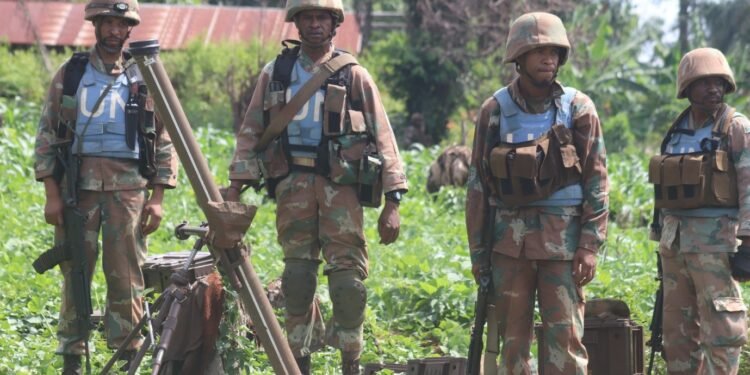
In a pivotal session at the United Nations on 21 November, a US Mission to the United Nations official addressed recent allegations of sexual exploitation and abuse involving South African troops within the UN Organization Stabilization Mission in the Democratic Republic of the Congo (MONUSCO). The United States called on the Secretary-General to enforce a zero-tolerance policy, emphasizing Security Council resolution 2272 (2016).
On Monday, 28 November, a US Mission to the UN official told defenceWeb, “The United States is aware of the recent allegations of sexual exploitation and abuse by South African troops in MONUSCO from the UN’s public reporting.”
The US Mission to the UN Official explained to defenceWeb America’s perspective on the issue and stated, “The United States takes sexual exploitation and abuse by UN peacekeepers very seriously, and we call on the Secretary-General to enforce the zero-tolerance policy for sexual exploitation and abuse, and Security Council resolution 2272 (2016), in the UN’s response to these allegations. We also call on South Africa to uphold its obligations to thoroughly investigate these allegations, and take appropriate action.”
During the Security Council’s discussion on the DRC situation, Under-Secretary-General for Peace Operations Jean-Pierre Lacroix briefed members on the UN’s decision to repatriate nine contingent members and one senior military officer, replacing two other senior officers. Lacroix stressed the UN’s zero-tolerance policy and commitment to peacekeeper accountability.
South Africa first provided peacekeepers to the United Nations in 1999 and by December 2022, over 1 100 peacekeepers served in the Democratic Republic of Congo.
Meanwhile, in a historic move, the DRC and MONUSCO signed an accelerated withdrawal plan in Kinshasa, also on 21 November. Vice Prime Minister Christophe Lutundula and MONUSCO Head Bintou Keita co-signed the plan, outlining an orderly withdrawal, with phases jointly implemented by government and MONUSCO teams, supported by national and international partners.
Lutundula highlighted the plan’s importance for the DRC’s international reputation, stating, “We want this withdrawal to be a model that will give us greater international respectability and help us improve our country’s image.”
Keita expressed gratitude, saying, “We thank our Congolese partners for signing this disengagement plan, which marks the end of a long process.”
The withdrawal plan includes a quarterly evaluation mechanism, ensuring steady progress and avoiding potential security vacuums. Post-MONUSCO, the UN commits to supporting the DRC’s development efforts to sustain peacebuilding and security gains.
Pearl Matibe is a Washington, DC-based foreign correspondent, and media commentator with expertise on US foreign policy and international security. You may follow her on Twitter: @PearlMatibe










